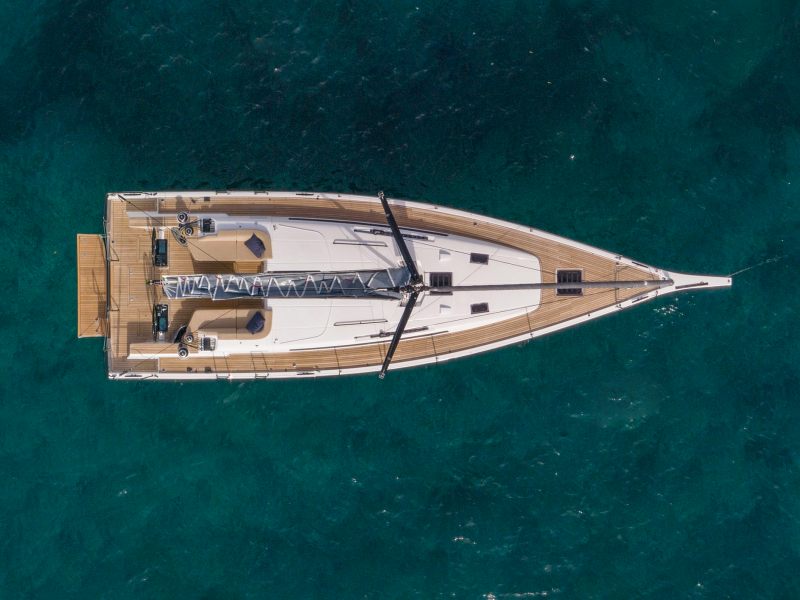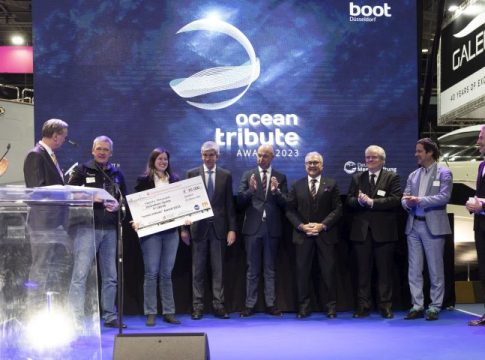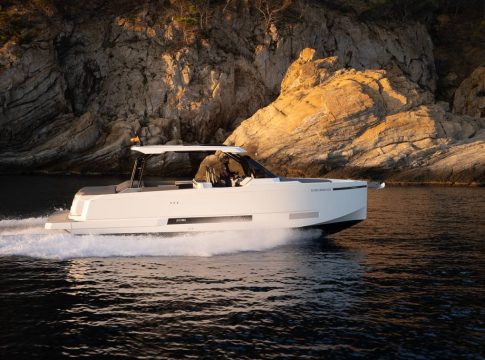BENETEAU has decided to follow the path of innovation to reduce the environmental impact of sailing. Practical yet ground-breaking innovations that are visible on the First 44e and the Oceanis 30.1e sailing yachts at Boot Düsseldorf.
These boats are built with recyclable resin, electric or hybrid power, teak alternatives, etc. and they pave the way for a circular economy in the sailing industry, making them a big new step forward in terms of sustainable sailing and responsible purchasing.
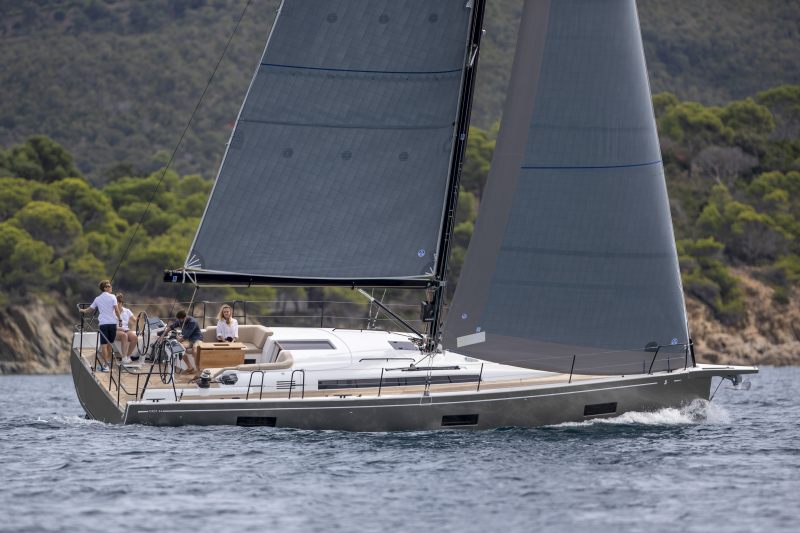
FIRST 44E: «ECO-FRIENDLY BOAT CONCEPT BY BENETEAU»
• 1st production boat built from recyclable ELIUM resin
• Torqeedo series hybrid engine power
• Iroko deck cladding
OCEANIS 30.1E: «A NEW ALL-ELECTRIC SAILING EXPERIENCE»
• All-electric Torqeedo engine
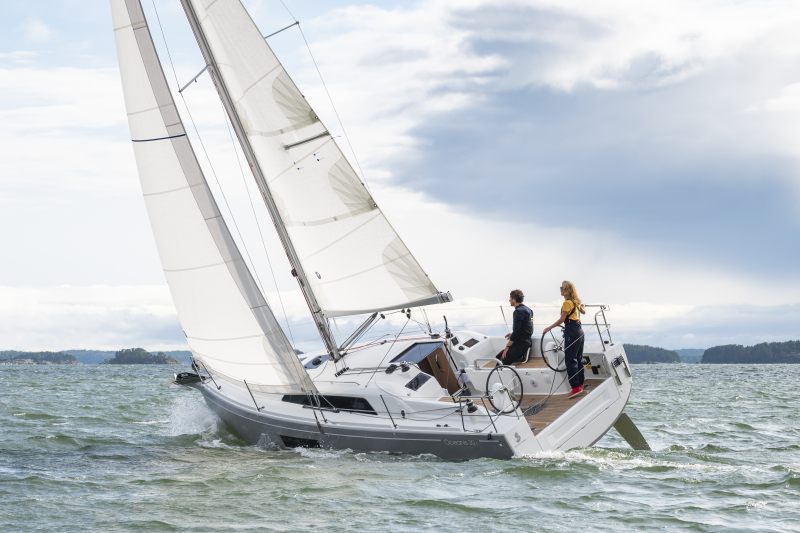
The two boats shown at the Boot Düsseldorf show include promising solutions that will be rolled out on an industrial scale for production models and offered to a wide public. BENETEAU has taken up an exciting challenge with a profound effect on how its customers envisage responsible sailing.
With these innovations BENETEAU is fully aware that it is taking the first steps on a long but inevitable road. It is a leader’s responsibility to pave the way, and the Beneteau aims to remain the gold standard on a market that will change completely.
We cannot force our customers, but we can win them over. That is why we need pioneering projects to develop new technologies and prepare the future leapforward. The transition is underway. The whole of the industry will need to change.
GianGuido Girotti – ManaGinG director, Boat division
BOATING TAKES ITS FIRST STEPS TOWARDS A CIRCULAR ECONOMY
The First 44e was made entirely from ELIUM resin, as part of an exclusive partnership with Arkema. This resin is recyclable by solvolysis, pyrolysis or thermolysis, all processes that separate the fibreglass from the resin during the dismantling of the boat. The latter then becomes reusable for new parts for new boats, using the infusion process. The resin therefore enters a virtuous circle that reduces the need for raw materials and also the amount of waste. In so doing, the new material improves the life-cycle of boats.
With ELIUM resin the boat’s performance and the skippers sensations are still the same. Implementation on the production line required three years of development and a complete overhaul of our processes. The First 44e is the first production model made of ELIUM, and it is an industrial tour de force.
What’s more BENETEAU endeavours to use natural fibres and bio-based resins wherever possible, particularly for the production of non-structural composite parts.
ELECTRIC ENGINE: TOWARDS NEW WAYS OF SAILING
With the First 44e and the Oceanis 30.1e, BENETEAU explores two ways of reducing our sailing carbon footprint by offering two different types of electric engines developed in partnership with Torqueedo.
The First 44e has a series hybrid propulsion system, where two pods – which integrate electric drives turning lifting propellers – are supplied by a 20 kW battery bank. The batteries can be recharged either at harbour or at sea with a diesel generator, which provides a system offering good autonomy and comfort. Above all, it creates the foundations for new ways of sailing with ‘silent yachting’, which allows you to sail on the engine in silence, and ‘silent motor sailing’, where you set a course under sail even inlight air, assisted by the electric engine which helps create apparent wind. Furthermore, this series hybrid solution offers great energy autonomy at anchor, since the service batteries can be recharged by the engine’s 20 kilowatt battery bank.
On the Oceanis 30.1e the solution used is all electric, always based on a Torqeedo pod, the 5 kW battery of which can be recharged at harbour or by solar panels. This sailing yacht, to be reserved initially for inland sailing grounds, naturally encourages users to enjoy new sailing experiences, more in harmony with nature and with a new appreciation of time. This is the beginning of a path towards new sailing practices that brings the brand and interested customers together in a joint effort towards greater eco-sufficiency.
PURCHASING
On the deck of the First 44e, teak, an exotic wood predominantly produced in Myanmar, has been replaced by Iroko from FSC certified forests in Congo. It is used in the form of glulam, i.e. fine layers of wood bonded together. This new alternative product is more virtuous from all points of view, while guaranteeing the same resistance, feeling on touch,and also a pleasant natural shade over time, comparable with teak.
This innovation makes responsible purchasing possible without compromising on design,comfort and elegance.
These two boats are the start of a new era and the result of our R&D staff’s efforts and commitment over a number of years. The next step will involve rolling out these innovations on all the BENETEAU sailing yacht and motorboat lines and all the group’s boats.
Reducing the environmental footprint of the nautical industry is a succession of challenges and small steps. Each innovation involves inventing valid technical solutions, creating partnerships and making investments, and, of course, receiving the support of customers. A demand for a new style of sailing is emerging. It is our responsibility to pave the way and not to impose changes in the way we sail, but to make them possible.
Jean-François Lair, ManaGinG director BENETEAU
BENETEAU: DESIGNED TO BE REMARKABLE
Since 1884, BENETEAU has been the reference in recreational boating. With its unsurpassed expertise and passion for design, BENETEAU build remarkable boats which do not only turn heads but bring together people to enjoy unique boating moments in community. Characterized by a great dedication and audacity, BENETEAU thereby do not only inspire boaters, but the entire industry.



